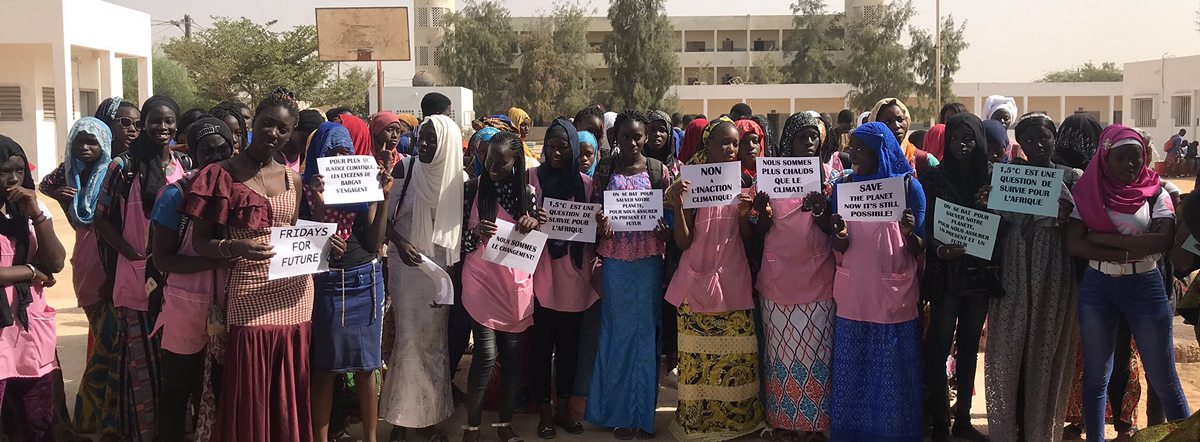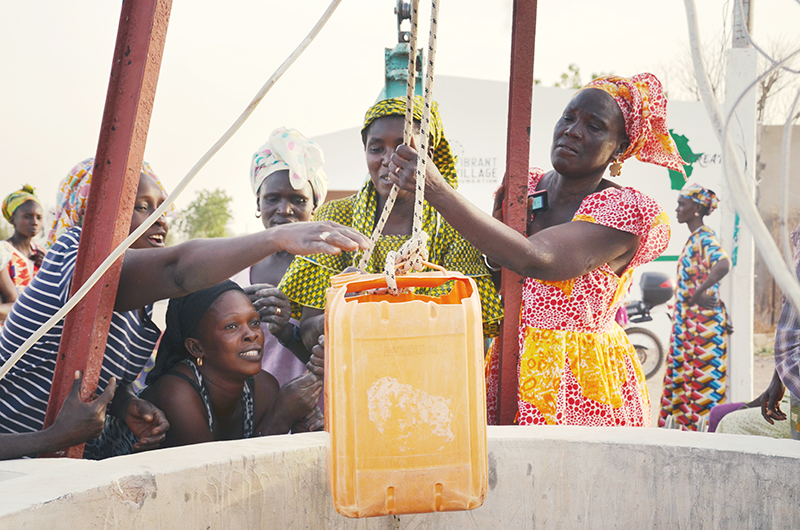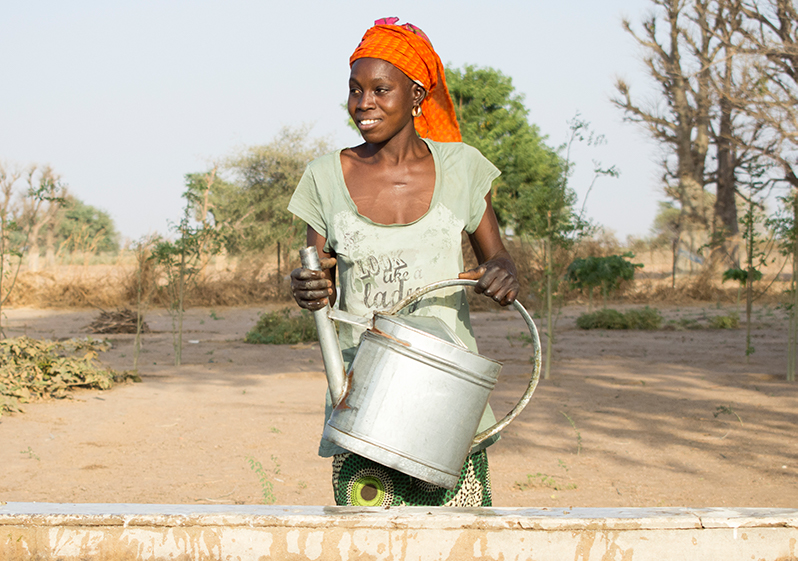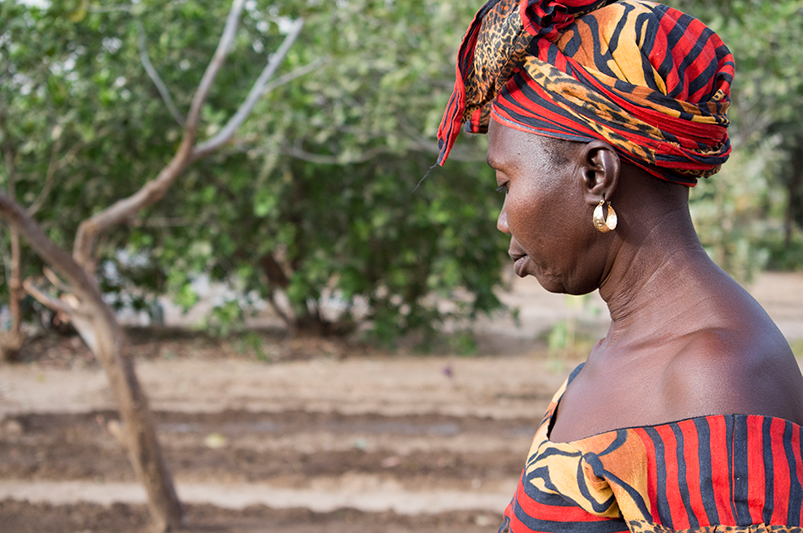During the last few weeks of September, millions of people around the world have come together to take action against climate change. Over 66 countries participated in making this one of the most significant climate strikes in history. In Senegal, hundreds of students protested from Dakar (BBC). The diversity and wide span of the gatherings reiterated that everyone is affected. Together, we can rise up with our neighbors as a global community to face the challenge.
According to the New York Times, over 4 million people gathered worldwide. This included places like our headquarters in Eugene, Oregon all the way to Berlin, Germany and beyond. It’s inspiring to see how many people are passionately active about our global crisis, especially the next generation. As mentioned in the New York Times, what comes next is seeing how this pressure turns into sustained change. Could this be a turning point?

Students protest in Dakar, Senegal. (Photo Credit: https://cpcml.ca/Tmlw2019/Articles/W4901013.HTM)
Greta Thunberg, a 16-year-old Swedish environmental activist, has become the face of the movement today. Her push for activism highlights the necessity for the next generation to inherit a safe and clean planet. At the 2019 climate action summit, Thunberg gave a very informative speech backed with power and emotion. “The popular idea of cutting our emission in half in 10 years only gives us a 50% chance of staying below 1.5 degrees, and the risk of setting off irreversible chain reactions beyond human control.” She explains. “And 50% is simply not acceptable to us, we, who have to live with the consequences.” (NPR).
What does a 1.5-degree increase in temperature mean? Although it may not sound like a large number, this change in temperature can mean the difference between a habitable world and a devastating future both environmentally and socially.
Climate Change in Senegal
Many Sub-Saharan African countries, including Senegal, are experiencing the increasingly disastrous effects of climate change. Of the 13 million people in Senegal, over half live in rural areas, and over 30% live on less than $1.25 per day. With limited access to electricity and water, the rural poor are more reliant on (and vulnerable to) their environment and climate. It is argued that vulnerable communities experience the most harmful effects while they contribute the least to climate change compared to more developed countries (USGLC).
There is a predicted 1-3 degree increase in temperature for Senegal by 2060. Already rainfall has decreased since 1996 by 35%. As a result, the short (3-4-month) rainy season is continuously reducing. Traditionally, rural families depend on agriculture for a living. However, the shrinking rainy season leaves little time or resources for rural communities to ensure food security and develop self-sufficiency. As a result, many families end up breaking apart as men search for employment opportunities in cities or across the seas in Europe.

Most rural communities get their water from the expensive commercial water system or use a bucket and pulley system to draw water from their wells by hand. This method is a labor-intensive and time-consuming task that can provide enough water to meet daily household needs but cannot provide the quantity of water needed to engage in dry-season crop cultivation.
Taking Action
Since 2008, CREATE!‘s mission is to partner with communities to combat the effects of climate change and empower families to improve their livelihoods for generations to come. By using local and renewable technologies, we aim to help communities gain access to clean water, energy, food, and income. If individuals can improve their environment while simultaneously developing self-sufficiency, families will no longer need to separate to build economic stability and food security.
Climate Change in Africa: Expanding Climate Action Beyond Senegal
Climate change in Africa has affected billions of lives across the continent. In the future, CREATE! would like to expand and share our climate action programs with neighboring countries to Senegal. The CREATE! team shares a passionate commitment to the mission of CREATE! and to working with rural village populations in Sub-Saharan Africa and elsewhere in the developing world to alleviate the impact of global warming on their lives and livelihoods.
From the CREATE! team, we strongly encourage everyone, wherever you are in the world, to do your part in taking care of our global home. If you are interested in supporting CREATE!’s climate action projects, click here. Climate change is a global problem, and now more than ever, we need to come together as a global community to work together to solve it.

Citations:
“Climate Change and the Developing World: A Disproportionate Impact.” USGLC, 9AD, https://www.usglc.org/blog/climate-change-and-the-developing-world-a-disproportionate-impact/
“Climate Strike: Latest updates from around the world”. BBC. Archived from the original on 2019-09-20. Retrieved 2019-09-20. https://web.archive.org/web/20190920073229/https://www.bbc.co.uk/news/live/world-49753710
Chappell, Bill. “’This Is All Wrong,’ Greta Thunberg Tells World Leaders At U.N. Climate Session.” NPR, NPR, 23 Sept. 2019, https://www.npr.org/2019/09/23/763389015/this-is-all-wrong-greta-thunberg-tells-world-leaders-at-u-n-climate-session
Cpc. “Global Student Climate Strike — Photo Review.” Communist Party of Canada (Marxist-Leninist), Sept. 2019, https://cpcml.ca/Tmlw2019/Articles/W4901013.HTM
Sengupta, Somini. “Young People Take to Streets in Global Climate Protest.” The New York Times, The New York Times, 20 Sept. 2019, https://www.nytimes.com/2019/09/20/climate/global-climate-strike.html

